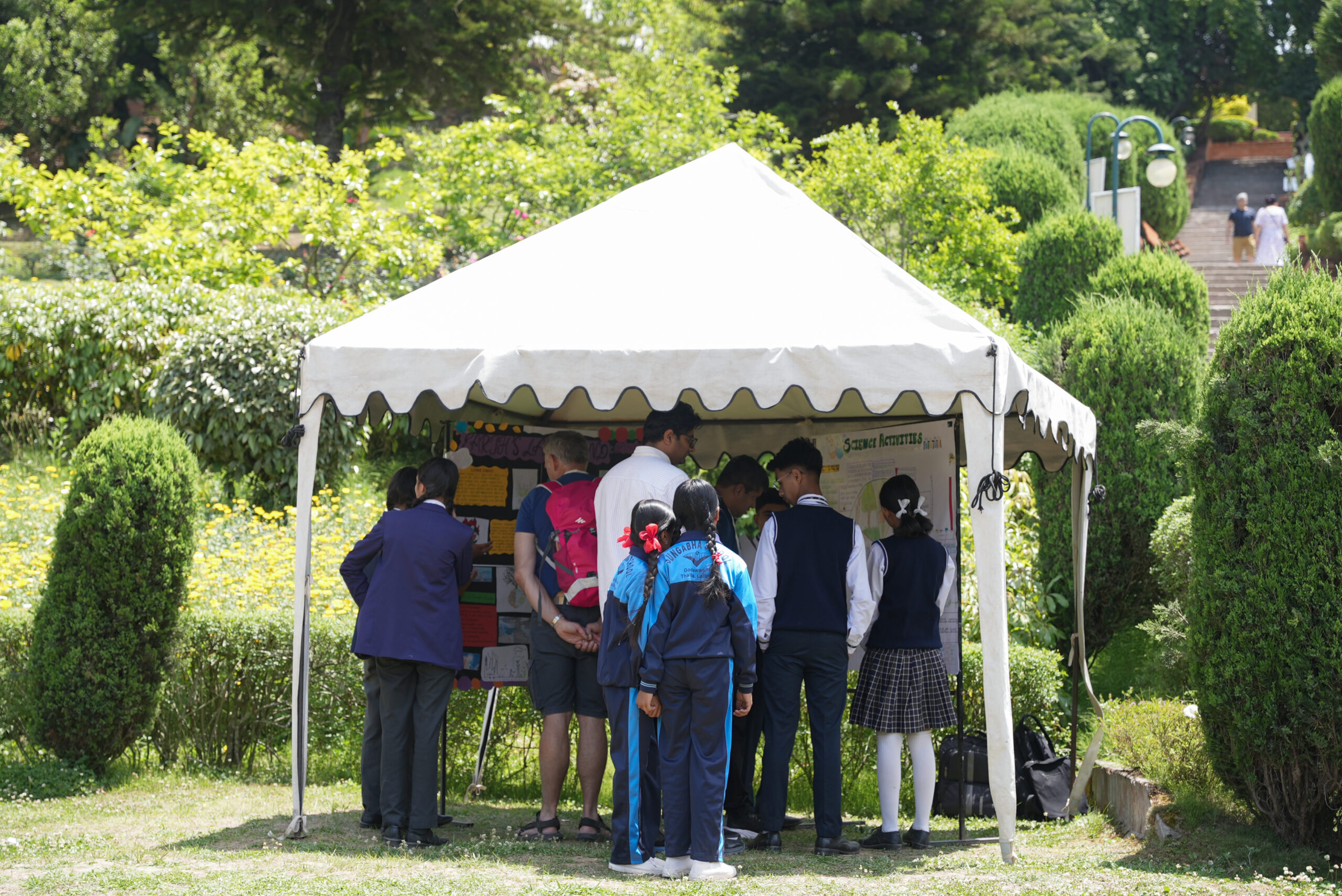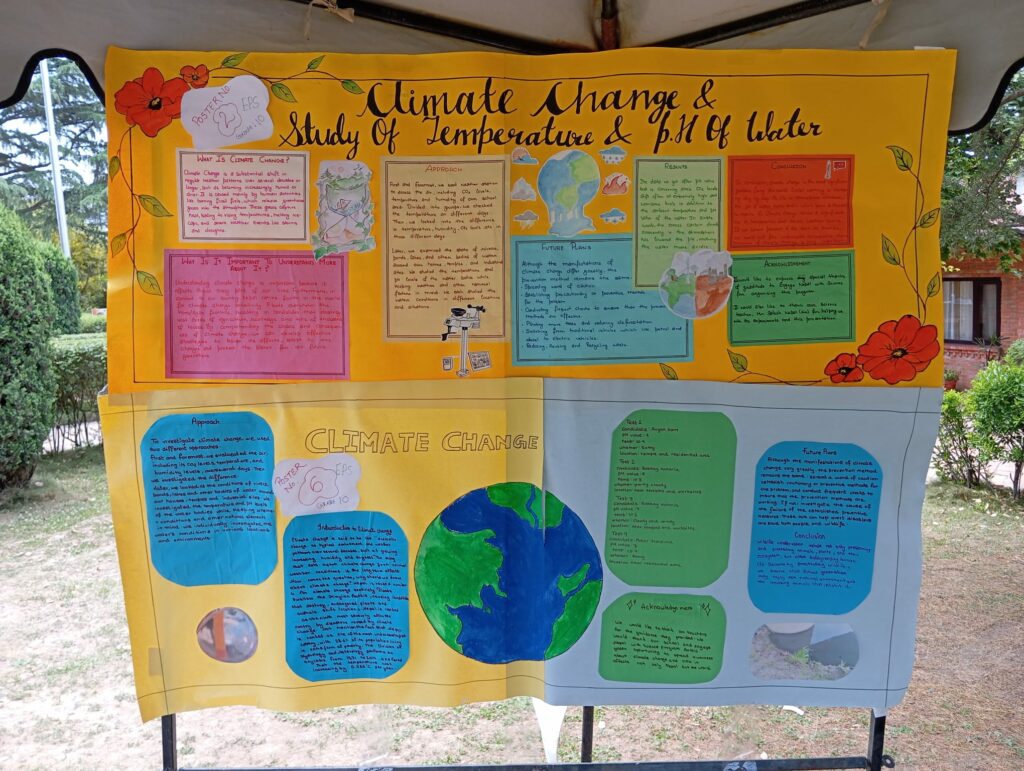Climate Change in Nepal: Poster Session during the International Conference ICBB 2024
Climate Change in Nepal: Young Scientists, Young Changemakers
The 5th International Conference on Bioscience and Biotechnology: ‘Planetary Health – A local Discourse’, which run from 21st-24th April 2024, aimed to showcase planetary health research to foster a deep understanding of the intricate relationships between human health, ecosystems and the climate, and stimulate conversations to build just and sustainable health systems.
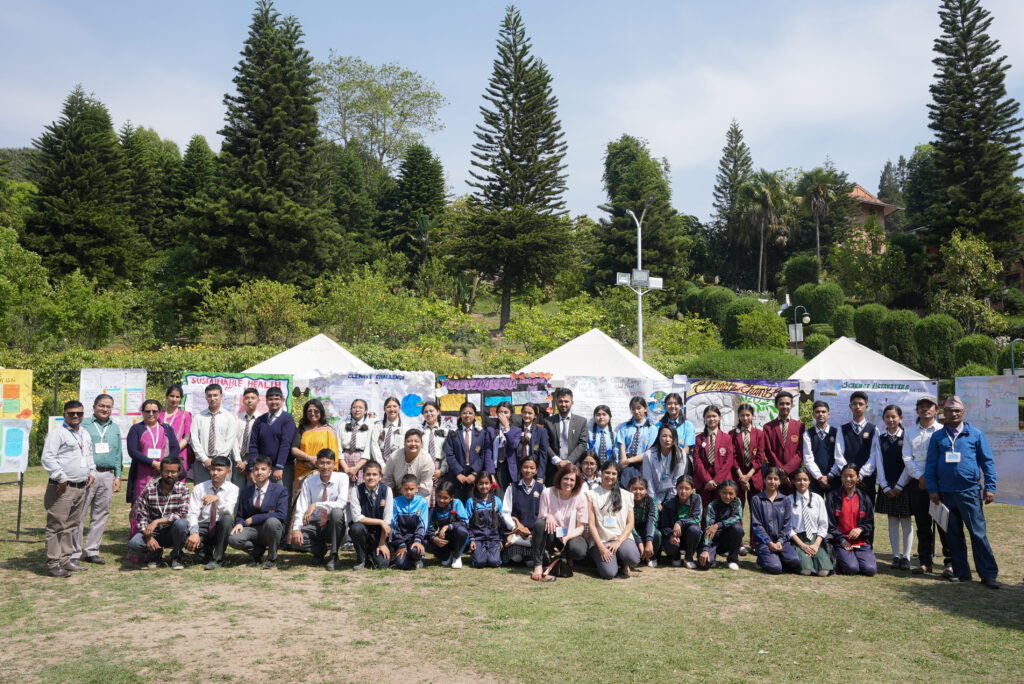
During the first day of the conference, 30 students from 8 different schools based in the Kathmandu Valley were selected to present 10 posters that highlighted their efforts studying climate change in their area and their climate action initiatives. The participating schools were: Mount View English Boarding School (Balkot), N. K. Singh Memorial English Preparatory High School (EPS, Baneshwor), Shree Basuki Secondary School (Lakuri Bhanjyang), Sungabha English School (Thaiba), Galaxy Public School (Gyaneshwor), Bright Future Secondary School (Naikap), Adarsha Kanya Niketan High School (Mangal Bazar) and Reliance Co. Ed (Kapan). 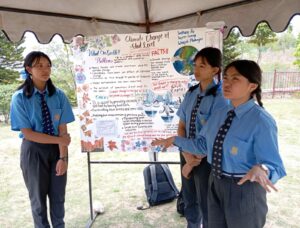
During the 2-hour poster session, primary and secondary school students confidently presented their citizen science projects in front of renown Planetary Health experts from all around the world. During their outstanding presentations, all the schools agreed that Nepal is one of the most vulnerable countries to climate change and that immediate national action had to be taken to protect their very important and varied ecosystems, exceptionally rich in biodiversity and freshwater resources.
The main findings displayed by the students were that during the last few years plastic has become the major waste component in their schools and their streets. Plastic is non-biodegradable and does not decompose and it has become one of the most pressing environmental issues of our time. Students also had studied air pollution using microscopes and using lichens as bioindicators to measure the air quality in their locality. Remarkably, some of the students had also been talking to elder members of their families and their communities to understand the changes in weather patterns and in biodiversity that have already been happening during the last 40-50 years and to assess how much they knew about climate change.
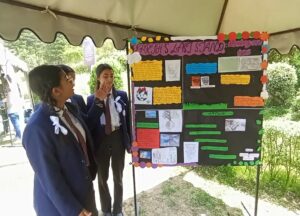 As a result of all of their observations, students presented the initiatives undertaken to address pressing issues and their future action plans to further reach their communities to continue empowering in environmental education and spreading environmental awareness. Some of the initiatives and future plans discussed included: tree plantation programs to preserve local biodiversity, joining national and international programs to tackle invasive species, plastic free initiatives, reusing plastic to give it a new life through art and other creative approaches, litter picking events, talks to local businesses to reduce the use of plastic bags and encourage the use of sustainable transportation, and last but not least, reduce consumerism. Some of the students that had been collaborating with schools from other parts of the world to tackle the climate crisis, also emphasised the importance of international cooperation to combat the biggest challenge of our times.
As a result of all of their observations, students presented the initiatives undertaken to address pressing issues and their future action plans to further reach their communities to continue empowering in environmental education and spreading environmental awareness. Some of the initiatives and future plans discussed included: tree plantation programs to preserve local biodiversity, joining national and international programs to tackle invasive species, plastic free initiatives, reusing plastic to give it a new life through art and other creative approaches, litter picking events, talks to local businesses to reduce the use of plastic bags and encourage the use of sustainable transportation, and last but not least, reduce consumerism. Some of the students that had been collaborating with schools from other parts of the world to tackle the climate crisis, also emphasised the importance of international cooperation to combat the biggest challenge of our times.
The schools that participated in this event are part of our Connecting the Climate Challenge environmental education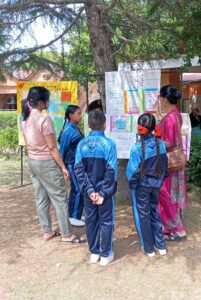 programme and during the presentations we were able to see the relevance and evolution of their projects, which gave us valuable feedback. On this occasion, the students had the opportunity to publicly display their work and their ideas for future projects. This was highly appreciated by both teachers and students, as it gave them a boost to their motivation.
programme and during the presentations we were able to see the relevance and evolution of their projects, which gave us valuable feedback. On this occasion, the students had the opportunity to publicly display their work and their ideas for future projects. This was highly appreciated by both teachers and students, as it gave them a boost to their motivation.
The underlying objective, beyond the participation of the students, is that the results can also be shared with the other participating schools, through new exchange activities and new physical and virtual meetings involving the whole network of schools in the project. Future events where we will be able to continue to share this work include, for example, the Second National Convention for Environment and a second networking workshop planned for next year under the theme Connecting the Climate Challenge: The Future II, where representatives from all 20 schools in Nepal will participate.
Thank you to the Eurofins Foundation for their support!


